- Home
- Philip Pullman
His Dark Materials 01 - The Golden Compass Page 16
His Dark Materials 01 - The Golden Compass Read online
Page 16
Lyra could hardly sit still. Farder Coram, however, knew the etiquette for meetings such as this, and took another spiced honey cake from the plate. While he ate it, Dr. Lanselius turned to Lyra.
"I understand that you are in possession of an alethiometer," he said, to her great surprise; for how could he have known that?
"Yes," she said, and then, prompted by a nip from Pantalaimon, added, "Would you like to look at it?"
"I should like that very much."
She fished inelegantly in the oilskin pouch and handed him the velvet package. He unfolded it and held it up with great care, gazing at the face like a Scholar gazing at a rare manuscript.
"How exquisite!" he said. "I have seen one other example, but it was not so fine as this. And do you possess the books of readings?"
"No," Lyra began, but before she could say any more, Farder Coram was speaking.
"No, the great pity is that although Lyra possesses the alethiometer itself, there's no means of reading it whatsoever," he said. "It's just as much of a mystery as the pools of ink the Hindus use for reading the future. And the nearest book of readings I know of is in the Abbey of St. Johann at Heidelberg."
Lyra could see why he was saying this: he didn't want Dr. Lanselius to know of Lyra's power. But she could also see something Farder Coram couldn't, which was the agitation of Dr. Lanselius's daemon, and she knew at once that it was no good to pretend.
So she said, "Actually, I can read it," speaking half to Dr. Lanselius and half to Farder Coram, and it was the consul who responded.
"That is wise of you," he said. "Where did you obtain this one?"
"The Master of Jordan College in Oxford gave it to me," she said. "Dr. Lanselius, do you know who made them?"
"They are said to originate in the city of Prague," said the consul. "The Scholar who invented the first alethiometer was apparently trying to discover a way of measuring the influences of the planets, according to the ideas of astrology. He intended to make a device that would respond to the idea of Mars or Venus as a compass responds to the idea of North. In that he failed, but the mechanism he invented was clearly responding to something, even if no one knew what it was."
"And where did they get the symbols from?"
"Oh, this was in the seventeenth century. Symbols and emblems were everywhere. Buildings and pictures were designed to be read like books. Everything stood for something else; if you had the right dictionary, you could read Nature itself. It was hardly surprising to find philosophers using the symbolism of their time to interpret knowledge that came from a mysterious source. But, you know, they haven't been used seriously for two centuries or so."
He handed the instrument back to Lyra, and added:
"May I ask a question? Without the books of symbols, how do you read it?"
"I just make my mind go clear and then it's sort of like looking down into water. You got to let your eyes find the right level, because that's the only one that's in focus. Something like that," she said.
"I wonder if I might ask to see you do it?" he said.
Lyra looked at Farder Coram, wanting to say yes but waiting for his approval. The old man nodded.
"What shall I ask?" said Lyra.
"What are the intentions of the Tartars with regard to Kamchatka?"
That wasn't hard. Lyra turned the hands to the camel, which meant Asia, which meant Tartars; to the cornucopia, for Kamchatka, where there were gold mines; and to the ant, which meant activity, which meant purpose and intention. Then she sat still, letting her mind hold the three levels of meaning together in focus, and relaxed for the answer, which came almost at once. The long needle trembled on the dolphin, the helmet, the baby, and the anchor, dancing between them and onto the crucible in a complicated pattern that Lyra's eyes followed without hesitation, but which was incomprehensible to the two men.
When it had completed the movements several times, Lyra looked up. She blinked once or twice as if she were coming out of a trance.
"They're going to pretend to attack it, but they're not really going to, because it's too far away and they'd be too stretched out," she said.
"Would you tell me how you read that?"
"The dolphin, one of its deep-down meanings is playing, sort of like being playful," she explained. "I know it's the fifteenth because it stopped fifteen times and it just got clear at that level but nowhere else. And the helmet means war, and both together they mean pretend to go to war but not be serious. And the baby means—it means difficult—it'd be too hard for them to attack it, and the anchor says why, because they'd be stretched out as tight as an anchor rope. I just see it all like that, you see."
Dr. Lanselius nodded.
"Remarkable," he said. "I am very grateful. I shall not forget that."
Then he looked strangely at Farder Coram, and back at Lyra.
"Could I ask you for one more demonstration?" he said. "If you look out of this window, you'll see a shed with forty or more sprays of cloud-pine hanging on the wall. One of them has been used by Serafina Pekkala, and the others have not. Could you tell which is hers?"
"Yeah!" said Lyra, always ready to show off, and she took the alethiometer and hurried out. She was eager to see cloud-pine, because the witches used it for flying, and she'd never seen any before.
The two men stood by the window and watched as she kicked her way through the snow, Pantalaimon bouncing beside her as a hare, to stand in front of the wooden shed, head down, manipulating the alethiometer. After a few seconds she reached forward and unhesitatingly picked out one of the many sprays of pine and held it up.
Dr. Lanselius nodded.
Lyra, intrigued and eager to fly, held it above her head and jumped, and ran about in the snow trying to be a witch. The consul turned to Farder Coram and said: "Do you realize who this child is?"
"She's the daughter of Lord Asriel," said Farder Coram.
"And her mother is Mrs. Coulter, of the Oblation Board."
"And apart from that?"
The old gyptian had to shake his head. "No," he said, "I don't know any more. But she's a strange innocent creature, and I wouldn't have her harmed for the world. How she comes to read that instrument I couldn't guess, but I believe her when she talks of it. Why, Dr. Lanselius? What do you know about her?"
"The witches have talked about this child for centuries past," said the consul. "Because they live so close to the place where the veil between the worlds is thin, they hear immortal whispers from time to time, in the voices of those beings who pass between the worlds. And they have spoken of a child such as this, who has a great destiny that can only be fulfilled elsewhere—not in this world, but far beyond. Without this child, we shall all die. So the witches say. But she must fulfill this destiny in ignorance of what she is doing, because only in her ignorance can we be saved. Do you understand that, Farder Coram?"
"No," said Farder Coram, "I'm unable to say that I do."
"What it means is that she must be free to make mistakes. We must hope that she does not, but we can't guide her. I am glad to have seen this child before I die."
"But how did you recognize her as being that particular child? And what did you mean about the beings who pass between the worlds? I'm at a loss to understand you, Dr. Lanselius, for all that I judge you're an honest man...."
But before the consul could answer, the door opened and Lyra came in bearing a little branch of pine.
"This is the one!" she said. "I tested 'em all, and this is it, I'm sure. But it won't fly for me."
The consul said, "Well, Lyra, that is remarkable. You are lucky to have an instrument like that, and I wish you well with it. I would like to give you something to take away with you...."
He took the spray and broke off a twig for her.
"Did she really fly with this?" Lyra said.
"Yes, she did. But then she is a witch, and you are not. I can't give you all of it, because I need it to contact her, but this will be enough. Look after it."
"
Yes, I will," she said. "Thank you."
And she tucked it into her purse beside the alethiometer. Farder Coram touched the spray of pine as if for luck, and on his face was an expression Lyra had never seen before: almost a longing. The consul showed them to the door, where he shook hands with Farder Coram, and shook Lyra's hand too.
"I hope you find success," he said, and stood on his doorstep in the piercing cold to watch them up the little street.
"He knew the answer about the Tartars before I did," Lyra told Farder Coram. "The alethiometer told me, but I never said. It was the crucible."
"I expect he was testing you, child. But you done right to be polite, being as we can't be sure what he knows already. And that was a useful tip about the bear. I don't know how we would a heard otherwise."
They found their way to the depot, which was a couple of concrete warehouses in a scrubby area of waste ground where thin weeds grew between gray rocks and pools of icy mud. A surly man in an office told them that they could find the bear off duty at six, but they'd have to be quick, because he usually went straight to the yard behind Einarsson's Bar, where they gave him drink.
Then Farder Coram took Lyra to the best outfitter's in town and bought her some proper cold-weather clothing. They bought a parka made of reindeer skin, because reindeer hair is hollow and insulates well; and the hood was lined with wolverine fur, because that sheds the ice that forms when you breathe. They bought underclothing and boot liners of reindeer calf skin, and silk gloves to go inside big fur mittens. The boots and mittens were made of skin from the reindeer's forelegs, because that is extra tough, and the boots were soled with the skin of the bearded seal, which is as tough as walrus hide, but lighter. Finally they bought a waterproof cape that enveloped her completely, made of semitransparent seal intestine.
With all that on, and a silk muffler around her neck and a woollen cap over her ears and the big hood pulled forward, she was uncomfortably warm; but they were going to much colder regions than this.
John Faa had been supervising the unloading of the ship, and was keen to hear about the witch consul's words, and even keener to learn of the bear.
"We'll go to him this very evening," he said. "Have you ever spoken to such a creature, Farder Coram?"
"Yes, I have; and fought one, too, though not by myself, thank God. We must be ready to treat with him, John. He'll ask a lot, I've no doubt, and be surly and difficult to manage; but we must have him."
"Oh, we must. And what of your witch?"
"Well, she's a long way off, and a clan queen now," said Farder Coram. "I did hope it might be possible for a message to reach her, but it would take too long to wait for a reply."
"Ah, well. Now let me tell you what I've found, old friend." For John Faa had been fidgeting with impatience to tell them something. He had met a prospector on the quayside, a New Dane from the country of Texas, and this man had a balloon, of all things. The expedition he'd been hoping to join had failed for lack of funds even before it had left Amsterdam, so he was stranded.
"Think what we might do with the help of an aeronaut, Farder Coram!" said John Faa, rubbing his great hands together. "I've engaged him to sign up with us. Seems to me we struck lucky a coming here."
"Luckier still if we had a clear idea of where we were going," said Farder Coram, but nothing could damp John Faa's pleasure in being on campaign once more.
After darkness had fallen, and when the stores and equipment had all been safely unloaded and stood in waiting on the quay, Farder Coram and Lyra walked along the waterfront and looked for Einarsson's Bar. They found it easily enough: a crude concrete shed with a red neon sign flashing irregularly over the door and the sound of loud voices through the condensation-frosted windows.
A pitted alley beside it led to a sheet-metal gate into a rear yard, where a lean-to shed stood crazily over a floor of frozen mud. Dim yellow light through the rear window of the bar showed a vast pale form crouching upright and gnawing at a haunch of meat which it held in both hands. Lyra had an impression of bloodstained muzzle and face, small malevolent black eyes, and an immensity of dirty matted yellowish fur. As it gnawed, hideous growling, crunching, sucking noises came from it.
Farder Coram stood by the gate and called:
"Iorek Byrnison!"
The bear stopped eating. As far as they could tell, he was looking at them directly, but it was impossible to read any expression on his face.
"Iorek Byrnison," said Farder Coram again. "May I speak to you?"
Lyra's heart was thumping hard, because something in the bear's presence made her feel close to coldness, danger, brutal power, but a power controlled by intelligence; and not a human intelligence, nothing like a human, because of course bears had no daemons. This strange hulking presence gnawing its meat was like nothing she had ever imagined, and she felt a profound admiration and pity for the lonely creature.
He dropped the reindeer leg in the dirt and slumped on all fours to the gate. Then he reared up massively, ten feet or more high, as if to show how mighty he was, to remind them how useless the gate would be as a barrier, and he spoke to them from that height.
"Well? Who are you?"
His voice was so deep it seemed to shake the earth. The rank smell that came from his body was almost overpowering.
"I'm Farder Coram, from the gyptian people of Eastern Anglia. And this little girl is Lyra Belacqua."
"What do you want?"
"We want to offer you employment, Iorek Byrnison."
"I am employed."
The bear dropped on all fours again. It was very hard to detect any expressive tones in his voice, whether of irony or anger, because it was so deep and so flat.
"What do you do at the sledge depot?" Farder Coram asked.
"I mend broken machinery and articles of iron. I lift heavy objects."
"What kind of work is that for a panserbjørne?"
"Paid work."
Behind the bear, the door of the bar opened a little way and a man put down a large earthenware jar before looking up to peer at them.
"Who's that?" he said.
"Strangers," said the bear.
The bartender looked as if he was going to ask something more, but the bear lurched toward him suddenly and the man shut the door in alarm. The bear hooked a claw through the handle of the jar and lifted it to his mouth. Lyra could smell the tang of the raw spirits that splashed out.
After swallowing several times, the bear put the jar down and turned back to gnaw his haunch of meat, heedless of Farder Coram and Lyra, it seemed; but then he spoke again.
"What work are you offering?"
"Fighting, in all probability," said Farder Coram. "We're moving north until we find a place where they've taken some children captive. When we find it, we'll have to fight to get the children free; and then we'll bring them back."
"And what will you pay?"
"I don't know what to offer you, Iorek Byrnison. If gold is desirable to you, we have gold."
"No good."
"What do they pay you at the sledge depot?"
"My keep here in meat and spirits."
Silence from the bear; and then he dropped the ragged bone and lifted the jar to his muzzle again, drinking the powerful spirits like water.
"Forgive me for asking, Iorek Byrnison," said Farder Coram, "but you could live a free proud life on the ice hunting seals and walruses, or you could go to war and win great prizes. What ties you to Trollesund and Einarsson's Bar?"
Lyra felt her skin shiver all over. She would have thought a question like that, which was almost an insult, would enrage the great creature beyond reason, and she wondered at Farder Coram's courage in asking it. Iorek Byrnison put down his jar and came close to the gate to peer at the old man's face. Farder Coram didn't flinch.
"I know the people you are seeking, the child cutters," the bear said. "They left town the day before yesterday to go north with more children. No one will tell you about them; they pretend not to see, beca
use the child cutters bring money and business. Now, I don't like the child cutters, so I shall answer you politely. I stay here and drink spirits because the men here took my armor away, and without that, I can hunt seals but I can't go to war; and I am an armored bear; war is the sea I swim in and the air I breathe. The men of this town gave me spirits and let me drink till I was asleep, and then they took my armor away from me. If I knew where they keep it, I would tear down the town to get it back. If you want my service, the price is this: get me back my armor. Do that, and I shall serve you in your campaign, either until I am dead or until you have a victory. The price is my armor. I want it back, and then I shall never need spirits again."
Eleven
Armor
When they returned to the ship, Farder Coram and John Faa and the other leaders spent a long time in conference in the saloon, and Lyra went to her cabin to consult the alethiometer. Within five minutes she knew exactly where the bear's armor was, and why it would be difficult to get it back.
She wondered whether to go to the saloon and tell John Faa and the others, but decided that they'd ask her if they wanted to know. Perhaps they knew already.
She lay on her bunk thinking of that savage mighty bear, and the careless way he drank his fiery spirit, and the loneliness of him in his dirty lean-to. How different it was to be human, with one's daemon always there to talk to! In the silence of the still ship, without the continual creak of metal and timber or the rumble of the engine or the rush of water along the side, Lyra gradually fell asleep, with Pantalaimon on her pillow sleeping too.
She was dreaming of her great imprisoned father when suddenly, for no reason at all, she woke up. She had no idea what time it was. There was a faint light in the cabin that she took for moonlight, and it showed her new cold-weather furs that lay stiffly in the corner of the cabin. No sooner did she see them than she longed to try them on again.
Once they were on, she had to go out on deck, and a minute later she opened the door at the top of the companionway and stepped out.

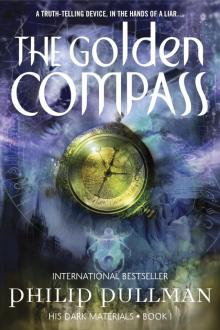 The Golden Compass
The Golden Compass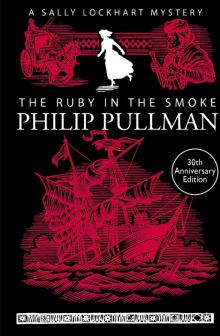 The Ruby in the Smoke
The Ruby in the Smoke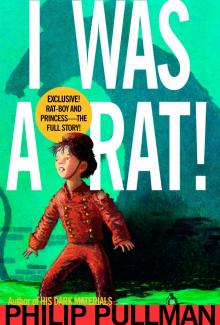 I Was a Rat!
I Was a Rat!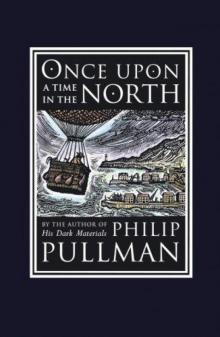 Once Upon a Time in the North
Once Upon a Time in the North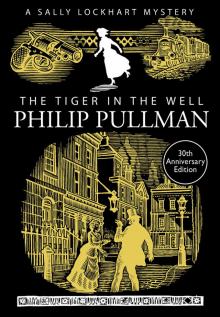 The Tiger in the Well
The Tiger in the Well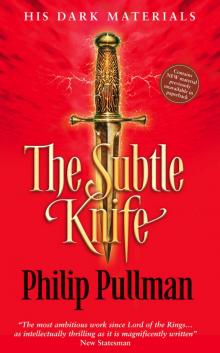 The Subtle Knife
The Subtle Knife The Butterfly Tattoo
The Butterfly Tattoo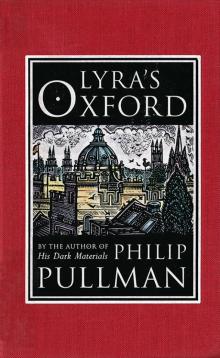 Lyra's Oxford
Lyra's Oxford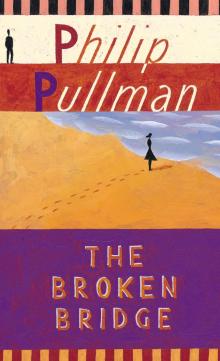 The Broken Bridge
The Broken Bridge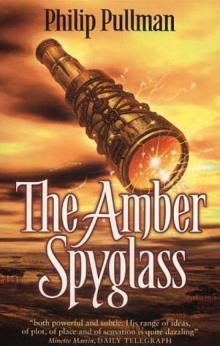 The Amber Spyglass
The Amber Spyglass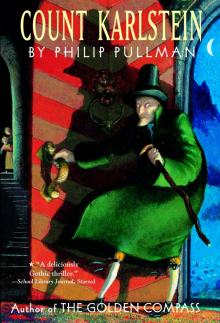 Count Karlstein
Count Karlstein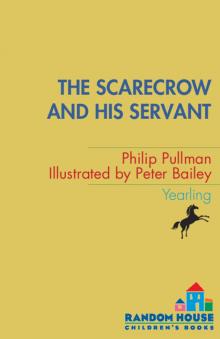 The Scarecrow and His Servant
The Scarecrow and His Servant The Shadow in the North
The Shadow in the North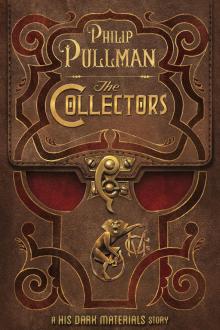 The Collectors
The Collectors The Good Man Jesus and the Scoundrel Christ
The Good Man Jesus and the Scoundrel Christ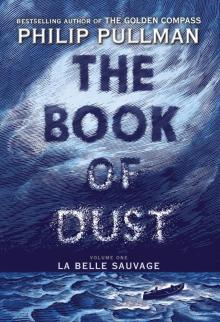 La Belle Sauvage
La Belle Sauvage The Tin Princess
The Tin Princess The Firework-Maker's Daughter
The Firework-Maker's Daughter The Book of Dust: The Secret Commonwealth (Book of Dust, Volume 2)
The Book of Dust: The Secret Commonwealth (Book of Dust, Volume 2) Serpentine
Serpentine Daemon Voices
Daemon Voices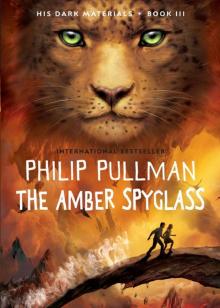 The Amber Spyglass: His Dark Materials
The Amber Spyglass: His Dark Materials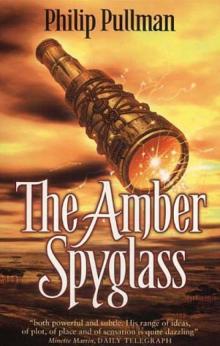 The Amber Spyglass hdm-3
The Amber Spyglass hdm-3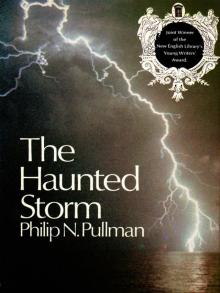 The Haunted Storm
The Haunted Storm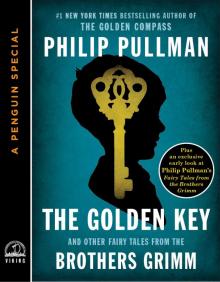 The Golden Key
The Golden Key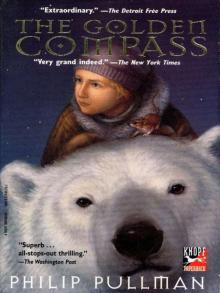 His Dark Materials 01 - The Golden Compass
His Dark Materials 01 - The Golden Compass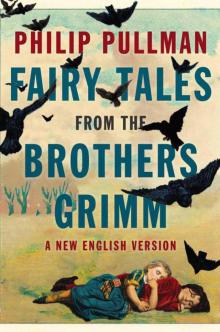 Fairy Tales from the Brothers Grimm: A New English Version
Fairy Tales from the Brothers Grimm: A New English Version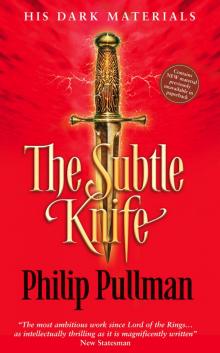 His Dark Materials 02 - The Subtle Knife
His Dark Materials 02 - The Subtle Knife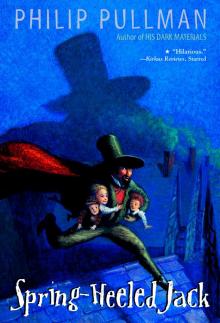 Spring-Heeled Jack
Spring-Heeled Jack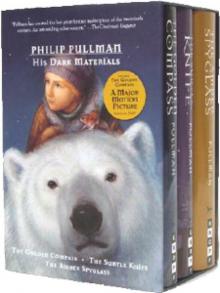 The Golden Compass hdm-1
The Golden Compass hdm-1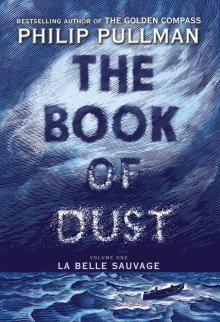 The Book of Dust, Volume 1
The Book of Dust, Volume 1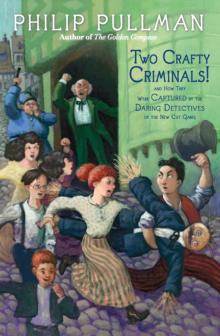 Two Crafty Criminals!
Two Crafty Criminals!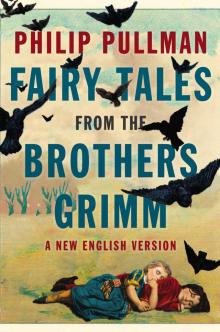 Fairy Tales from the Brothers Grimm
Fairy Tales from the Brothers Grimm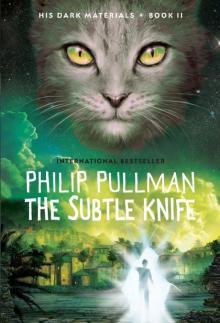 The Subtle Knife: His Dark Materials
The Subtle Knife: His Dark Materials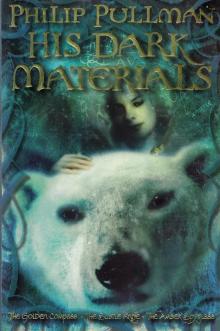 His Dark Materials Omnibus
His Dark Materials Omnibus The Golden Compass: His Dark Materials
The Golden Compass: His Dark Materials The White Mercedes
The White Mercedes